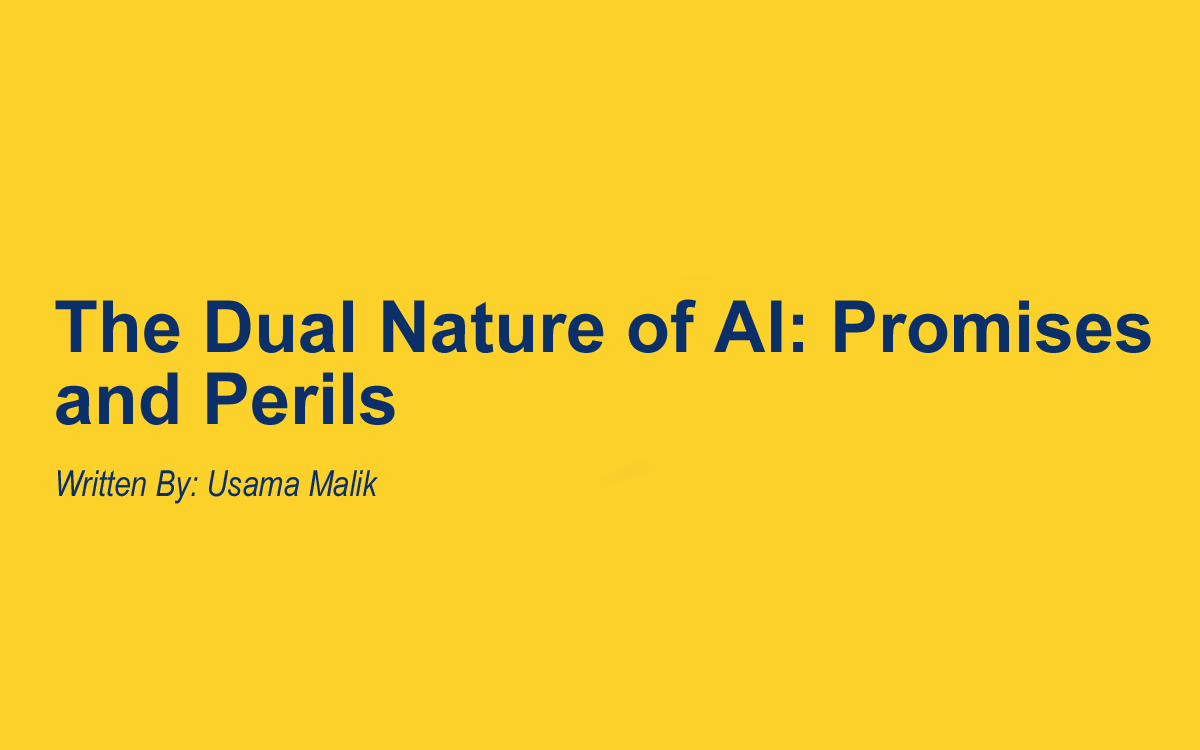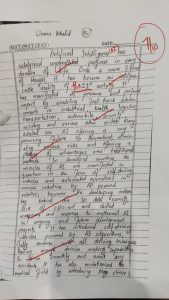
The Dual Nature of AI: Promises and Perils
Usama Malik has done BS Aviation Management from Air University Islamabad. He is an ardent reader and takes keen interest in writing on global issues.
Artificial Intelligence (AI) has catalyzed unparalleled progress in every domain of life. Once a mere figment of thought, it has become an indispensable reality of the 21st century. It has manifested its presence and profound impact by enabling fast-track advancements in industrial, health, logistics, transportation, automobile, security, military and various other sectors. Many scholars see AI offering a very promising future to humankind, eliminating various risks and offering a plethora of advantages over traditional methods. In developed countries, the miracles of AI are manifested in quantum in the form of self-driving vehicles and automated operations in various industries by AI powered robotics; however the developing nations lag behind due to data scarcity, lack of efficient and skilled manpower and resources to implement AI in ongoing and future development projects. It has introduced self-driving vehicles powered by AI algorithms, fully converse with all driving techniques having enough decision making capabilities to drive smoothly and avoid any accidents. It has also revolutionized the medical field by introducing Mayo clinics and a unique system of collecting and analyzing data about certain contagious diseases. Mayo clinics can efficiently predict whether a pregnant woman will have normal delivery or not based upon the vitals and health of mother and child. After successfully analyzing medical data, it can efficiently predict the outbreaks of diseases, thus helping the world to mitigate epidemics more swiftly. Its miracles are evident in manufacturing industries where automated AI-powered robots are performing very complex tasks with high degree of precision and accuracy that too at a breath-taking pace. While appreciating the accomplished promises and perils of AI, the world should also work on few shortcoming reported by consumers of AI as privacy breaches, data scarcity and rapid reduction of job market. Before utilizing and integrating AI on massive scales, regulated bodies must formulate concrete policies, legal framework and highly professional human expert teams to supervise and govern its usage on ethical, legal and technological levels.






